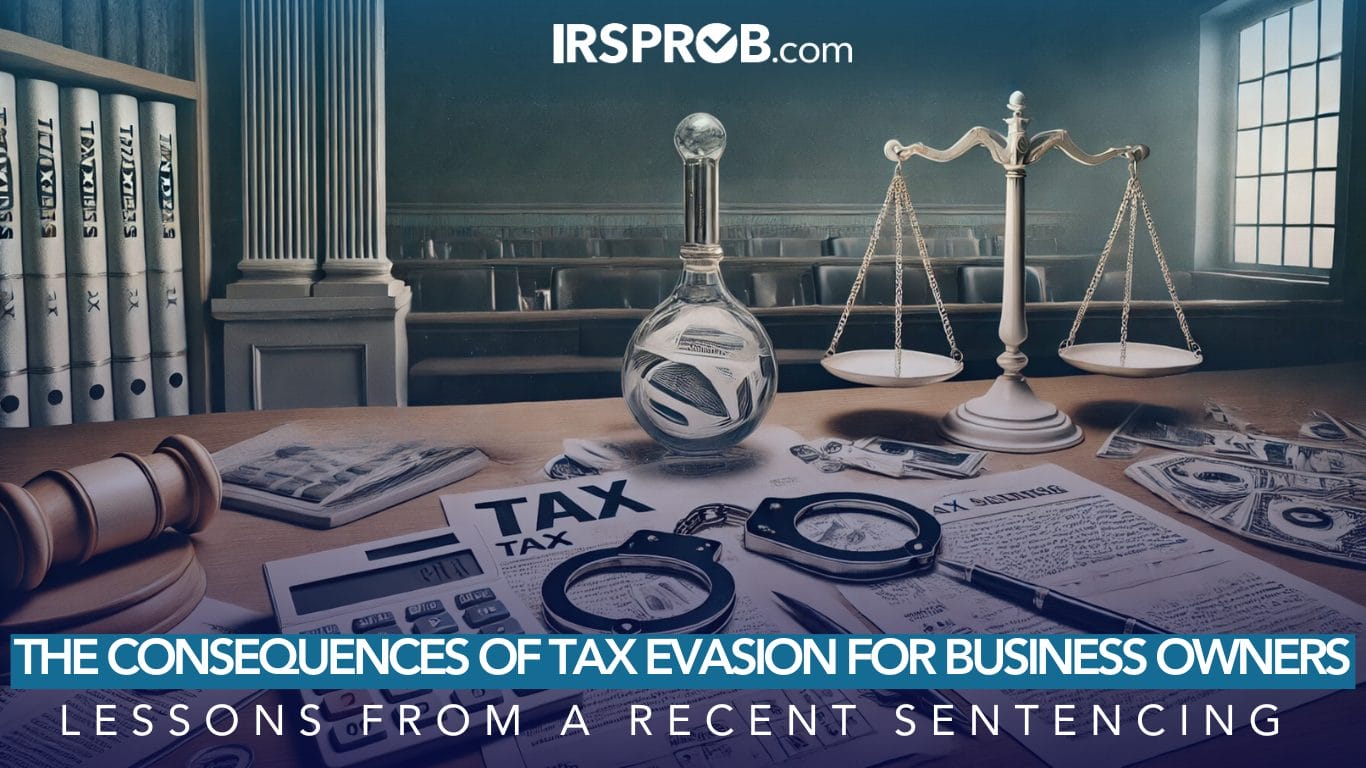
Business owners often face complicated tax regulations, making it essential to stay on top of tax compliance. Recent legal cases, such as the sentencing of an Albuquerque man for tax evasion, serve as stark reminders of the serious consequences that can arise when business owners fail to follow the law. Understanding the risks and maintaining compliance with IRS requirements should be a top priority for anyone running a business.
The Albuquerque Case: A Cautionary Tale
In a recent case, a business owner in Albuquerque was sentenced for an elaborate tax evasion scheme that involved concealing income, underreporting earnings, and misleading the IRS. The man was sentenced to significant jail time and financial penalties, a reminder that tax evasion is taken seriously by federal authorities. While this particular case involved criminal tax evasion, even smaller-scale mistakes can lead to audits, fines, and other penalties that can harm a business’s financial health and reputation.
What is Tax Evasion?
Tax evasion occurs when individuals or businesses intentionally underreport income, overstate deductions, or engage in other illegal activities to reduce their tax liabilities. According to the IRS, tax evasion is a felony and can result in prison time, heavy fines, and interest on unpaid taxes. It’s important to distinguish between tax avoidance, which is legal and involves using tax strategies to minimize liabilities, and tax evasion, which involves fraudulent actions.
Common Pitfalls for Business Owners
Business owners are particularly vulnerable to tax evasion traps due to the complexity of business taxation. Here are some areas where business owners often run into trouble:
- Failing to Report All Income: Whether through cash payments, personal use of business funds, or other sources, underreporting income is one of the most common forms of tax evasion.
- Inflating Deductions: Overstating business expenses or deducting personal expenses as business costs can easily cross the line into fraudulent behavior.
- Misclassifying Employees: Misclassifying workers as independent contractors rather than employees to avoid payroll taxes is another common issue.
- Neglecting Payroll Taxes: Failing to remit employee payroll taxes is a serious offense that can lead to severe penalties, including criminal charges.
Protecting Your Business from Tax Evasion Penalties
To avoid the harsh consequences of tax evasion, business owners must be diligent in following IRS rules and regulations. Here are key strategies to stay compliant:
- Maintain Accurate Records: Proper documentation of income and expenses is critical. Keep detailed and organized records that reflect all business transactions.
- Use Qualified Tax Professionals: Working with a tax professional who understands business tax regulations can help ensure that your business is in compliance with IRS rules. They can also help you navigate complex deductions and credits legally.
- Understand Deductions: Be sure to properly categorize deductions and avoid overstating them. Personal expenses should never be mixed with business expenses, and deductions should reflect actual business activity.
- Stay Up to Date on Tax Law Changes: The tax landscape changes frequently, and it’s important to stay informed about updates that could impact your business. For example, the Corporate Alternative Minimum Tax (CAMT) and changes to the Employee Retention Credit (ERC) are recent updates that could affect your tax obligations.
- File on Time and Pay What’s Due: Always file your returns on time and pay your taxes promptly. Failing to do so can trigger penalties, interest, and eventually audits or legal action.
Final Thoughts
The Albuquerque case serves as a reminder to business owners that tax compliance isn’t optional. The IRS has broad authority to investigate and prosecute tax evasion cases, and the penalties can be severe. Taking the time to stay organized, work with professionals, and understand the tax laws that apply to your business is the best way to avoid costly mistakes and protect your business’s future. By staying proactive and compliant, you’ll ensure your business avoids the pitfalls that lead to situations like the one that resulted in this sentencing.
If you need guidance on how to stay compliant with IRS rules or if you’re concerned about a tax issue, consult a qualified tax professional who can help you navigate these complex waters safely.







